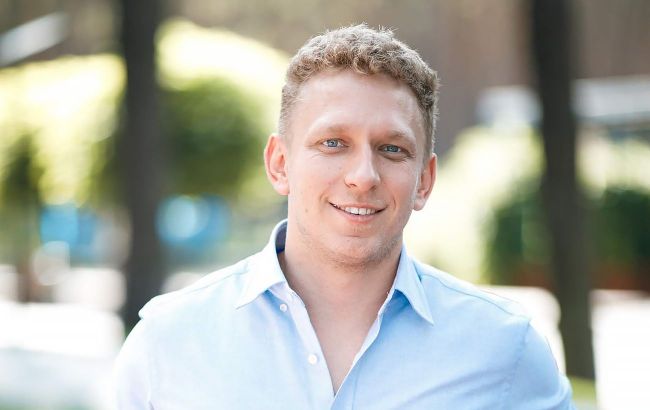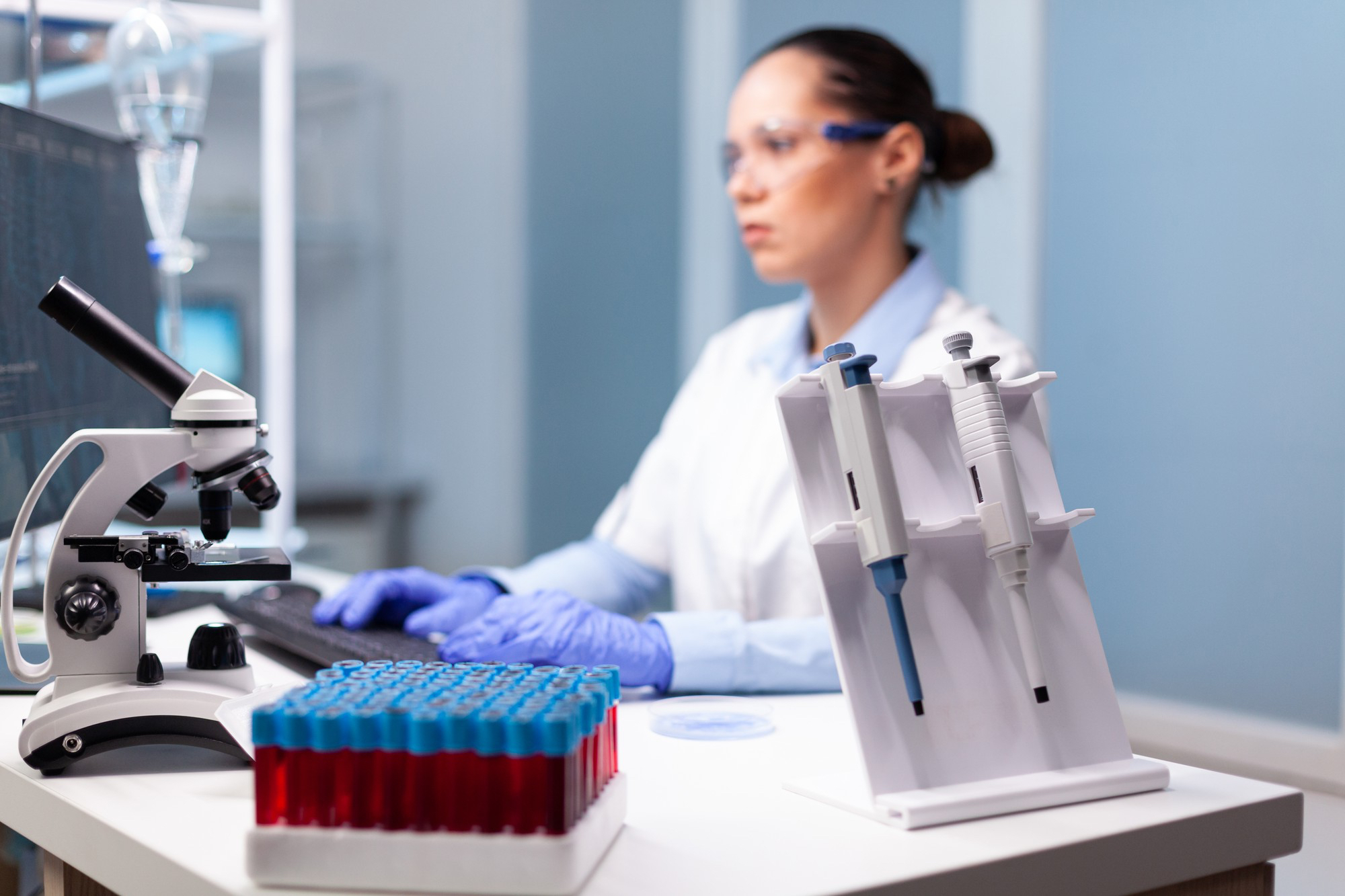Ukrainian geneticist Oleksandr Kolyada: 'We will inevitably live longer in future'
 Oleksandr Kolyada, Ukrainian scientist, candidate of biological sciences (Photo: provided to RBC-Ukraine)
Oleksandr Kolyada, Ukrainian scientist, candidate of biological sciences (Photo: provided to RBC-Ukraine)
Science in Ukraine is developing despite the war. Unfortunately, in a completely different reality, many of our scientists have found themselves abroad because of Russia's aggression. However, Ukrainians continue participating in international research and gaining recognition among colleagues from other countries.
Renowned geneticist and biogerontologist, candidate of biological sciences, and head of Ukrainian Association of Health Coaches Oleksandr Kolyada, in an interview with RBC-Ukraine, raises the issue of whether war affects the genes of future generations of Ukrainians, what recent trend has emerged among scientists, and when scientists will significantly extend human life and what diseases can genetics predict.
Here are the most interesting points from the conversation.
Contents
- Does war affect genes
- What happens to Ukrainian science during the war
- Can genetics already prevent diseases
- What is the harm of dietary supplements
- When will life be significantly extended
Does war affect genes
Genetics is inherent in genes, and genes do not change under the influence of circumstances. Whatever happens to you, your genome will remain the same. According to genetic scientists, we will pass on precisely 50% of our DNA to our children regardless of whether there is war, famine, or epidemic or if these are currently the best years of our lives.
"However, there is a fact of selection. Genes themselves do not change, but the proportion of genes in the population can change. And if we fantasize, we can imagine that certain genetic traits currently subject to destruction or reproductive limitation due to war may become less common. If we imagine that there are genetic markers for 'courage' or, conversely, markers for caution, will they be lost during military actions? We don't know this. To see, we need objective data. However, we have observed selection many times in history," asserts Oleksandr Kolyada.
People often try to find roots in genetics when talking about stress and similar things. However, it is not worth looking for them there. Because the consequences of stress or cultural events can be transmitted through genetics, upbringing, and education, the geneticist is sure. According to him, the influence of wars, hunger, and other stressful events is transmitted culturally and psychologically through traditions and upbringing.
What happens to Ukrainian science during the war
Science during the war suffered significant negative consequences. Many scientists were forced to leave the country. On the other hand, a huge number of scientists continued their work in Ukraine despite all the difficult circumstances, which also evoked respect and admiration, says Oleksandr Kolyada.
"At the same time, Ukrainian scientists are actively involved in international research. For example, they are involved in major projects studying the genomes of different people and research related to the genetics of long-lived individuals worldwide. Work is also being done to study various dramatic pathogens worldwide, such as the coronavirus. Colleagues from Ukraine are contributing to animal genetics research and studying evolutionary processes," he says.
Can genetics already prevent diseases
There are currently few genetic experiments on humans, says the scientist. Genetic engineering or genetic therapy tries not to treat diseases that have already occurred but to genetically prevent them from appearing at all.
"This is especially relevant for oncological diseases because they are very serious. And they can affect anyone regardless of their income or status. The same goes for genetic diseases such as cystic fibrosis and phenylketonuria. You can't cure them no matter how much money you have. Secondly and thirdly, this applies to diseases like type 2 diabetes, hyperhidrosis, Parkinson's, Alzheimer's," he explains.

Photo: Oleksandr Kolyada (provided to RBC-Ukraine)
Technologies are developing and improving every year. But the time when they will be focused on light, non-lethal diseases has not yet come. It will be much later.
"Now, we are refining these technologies to make them as safe as possible. There are still many ethical questions, for example, whether it is worth intervening in a person's DNA, and many others," adds Kolyada.
Genetics will help diagnose a disease at the family planning stage or the embryo selection stage during in vitro fertilization (IVF). But to correct something genetic, this also happens, mainly in oncology. However, this is only a few hundred cases worldwide each year. There are very few narrow genetic experiments on humans at the moment," the interlocutor adds.
What is the harm of dietary supplements
Dietary supplements or supplements widely advertised by marketers are divided into harmful, helpful, and simply senseless. Each of them is worth discussing separately.
"What is most important to consider? It is critical to approach exaggerated promises critically. Dietary supplements do not form the basis of a healthy lifestyle, and they can rarely achieve significant, large-scale effects. One hundred years ago, they could solve a certain problem in the era of vitamin deficiencies. But now, supplements, if not about vitamins, should occupy a conditional twentieth place in life," Oleksandr Kolyada explains.
Another harm the scientist sees in dietary supplements is a certain cognitive distortion.
"For example, there is a person who sleeps poorly and abuses alcohol but takes a supplement that promises to prolong life. But it doesn't work that way, and the contribution of these bad and good factors is not equivalent," he warns.
When will life be significantly extended
Life expectancy continues to increase, and people live longer. Life expectancy has steadily risen for almost a hundred years: it has not stopped for any year starting from the 1920s or 1930s. The geneticist says this results from scientific progress, biogerontology, medicine, and hygiene.
"According to one of the most famous biogerontologists, a person who lives to be 150 years old is already walking on this planet. We don't know which country they are currently in, whether they are in daycare or university, but they are already alive. The question is how we will ensure they truly live these years. But in perspective, we will inevitably live longer in the future," emphasizes Oleksandr Kolyada. He predicts that the first attempts to extend life radically will occur within twenty years.

Photo: Some health problems can be prevented at the family planning stage (Getty Images)
"What can we do to ensure that these attempts are not limited to research institutes in California but spread worldwide and to Ukraine? It is worth increasing trust in scientific research and paying attention to it to achieve this. Read more about it. And trust scientists more, supporting and popularizing them. Because the extension of life will not come to us from the realms of art or astrology. It will come from science, from scientific laboratories," he adds. However, geneticists believe that relaxing and doing nothing for one's health because scientists will come in 20 years and fix everything is a poor approach.
"If you encounter that time in poor shape, you will likely remain in that state for a long time. Therefore, following a healthy lifestyle is necessary, as it will allow us to reach a period when life can be significantly extended," says the scientist.

